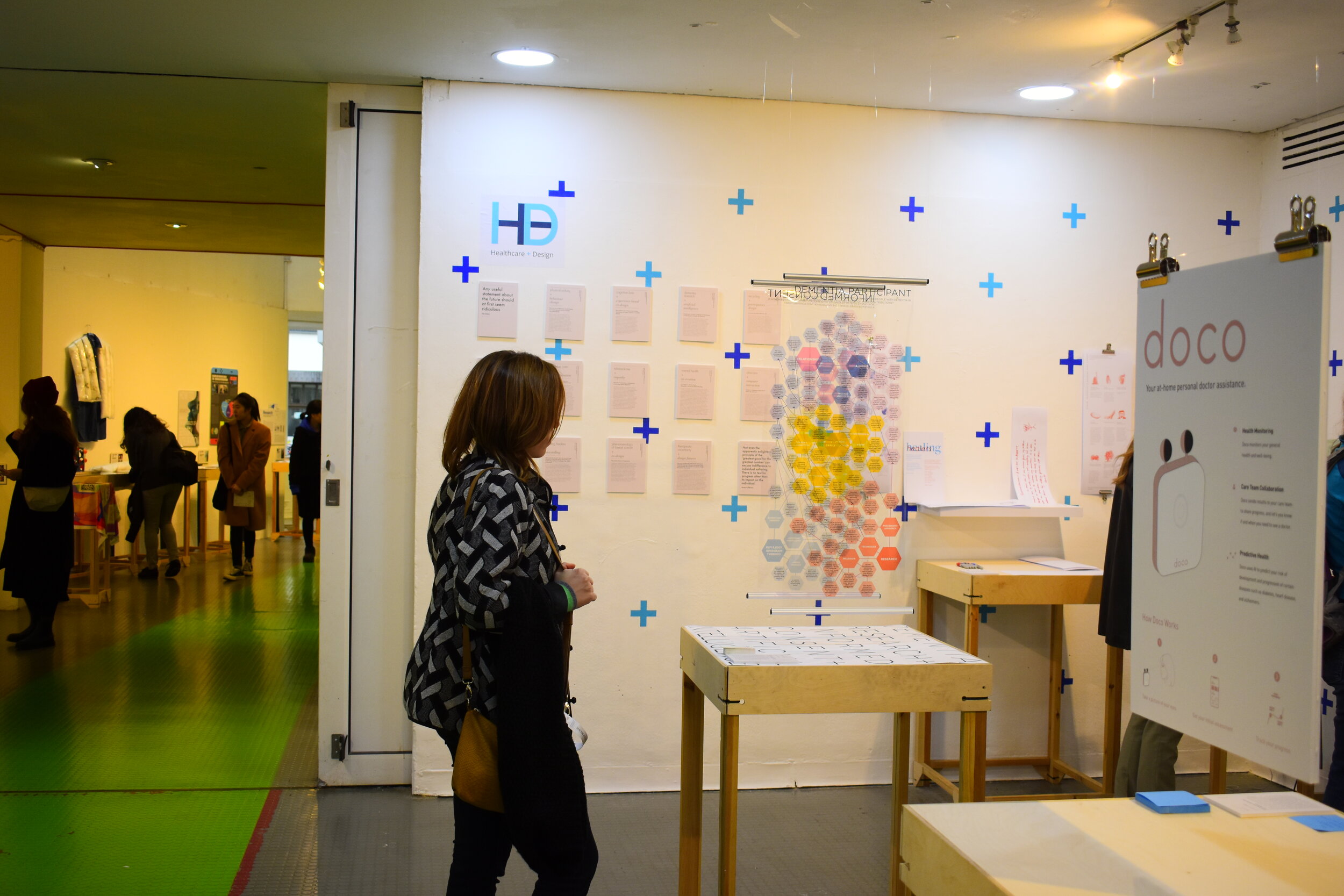Mapping Systems: Consent + Artificial Intelligence + Dementia
SYSTEM MAPPING | STAKEHOLDER MAPPING
This map visualised my in-progress degree research at the annual Work-in-Progress show at the Royal College of Art.
OPPORTUNITY
Foster a deeper understanding of my academic research through an exhibition piece at the Royal College of Art Work-In-Progress show. Simultaneously invite the public into the conversation by enabling exhibit patrons to share in the exploration and develop their own insights.
OUTCOME
A three-dimensional map of tensions between artificial intelligence, consent, and dementia.
EXHIBIT ANATOMY
Artificially intelligent (AI) care technology is becoming an increasingly popular solution, yet people with dementia are often excluded from the research which informs its development. Without the research input of people with dementia, these well-intended interventions can become obsolete or even harmful. This exhibit was intended to digest my in-progress research into the relationships between research participants with dementia, researchers, AI technology, and consent. The map to the left breaks down the anatomy of this project.
MAP CONTENT
The map visualised below discussed insights, relationships, and experiences relating to the informed consent of qualitative research participants with dementia. Themes include regulation, determining capacity to consent, tools for managing consent status, stakeholder relationships, common experiences of stakeholders, and research experiences.
There are few widely agreed upon standards for including people with dementia in research. Lack of certainty in the disease progression of dementia leads to regulations that err on the side of caution, rather than empower people with dementia to maintain autonomy.
For people with dementia, capacity is fluid. Lack of tools to help researchers and people with dementia cope with this fluidity makes it more difficult for people with dementia to participate in research.
It is important that researchers check capacity continuously throughout a study, nonverbal cues are particularly important indicators of assent from capacity.
For people with dementia, family and friends can often become caregivers gradually, often without realising it. It is important for researchers to be sensitive to complicated relationships that can evolve parallel with the progression of the disease.
Family members and caregivers of people with dementia are not great at assessing the quality of life of people with dementia. This difference in perspective makes it even more important for researchers to work directly with people who have dementia, rather than surrogate decision makers.
By addressing challenges surrounding communication between people with dementia and qualitative researchers we also provide a gateway to developing innovative interventions for people with a range of other cognitive or social disorders that might impair communication.










